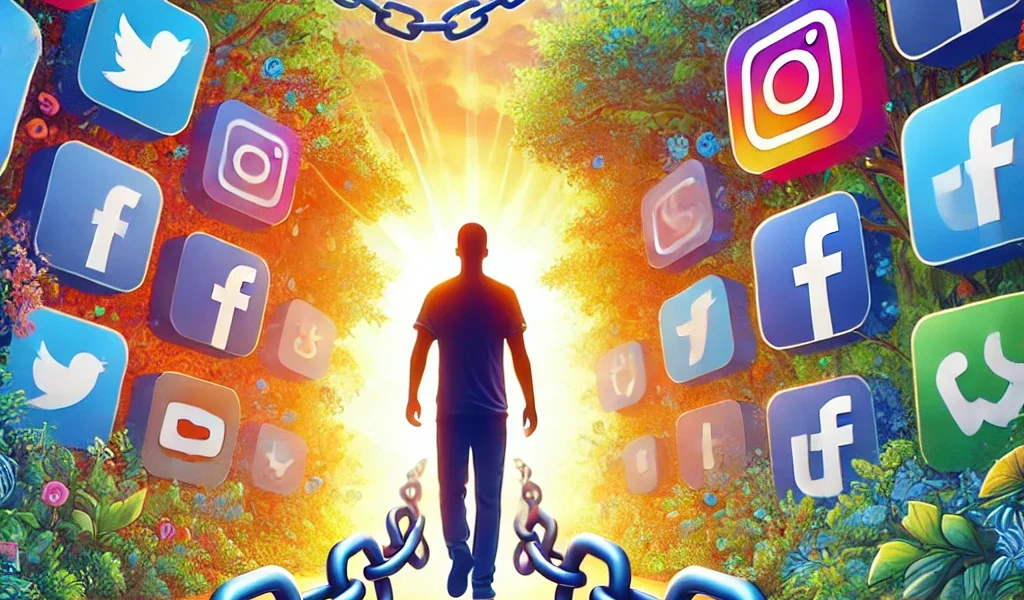In today’s fast-paced, technology-driven world, social media addiction has become an increasingly widespread issue. With apps like Instagram, TikTok, and Facebook designed to capture and keep our attention, it’s no wonder so many of us are glued to our screens. The constant stream of notifications, endless scrolling, and curated content can create an unhealthy relationship with our digital devices, making it difficult to focus on the present or engage meaningfully in real life.
For digital detox advocates, mental health enthusiasts, students overwhelmed by screen time, and professionals looking for a better work-life balance, breaking free from social media addiction can feel like an uphill battle. However, the process of reclaiming control over your time, mental space, and well-being is possible and incredibly rewarding.
Whether you’re a parent concerned about your child’s increasing social media usage, a personal development seeker wanting to maximize productivity, or someone experiencing digital fatigue and seeking a fresh start, this guide is for you. In this post, we will explore practical strategies, backed by research and expert insights, to help you disengage from social media dependency and foster healthier digital habits.
The Psychology Behind Social Media Addiction
Why Is Social Media So Addictive?
To successfully break free from social media, it’s essential to first understand why these platforms are so addictive. Social media is designed to stimulate the brain’s reward system by releasing dopamine, the “feel-good” chemical, every time you receive likes, comments, or shares. This dopamine boost gives a short-term sense of pleasure, making you crave more interaction and prompting you to scroll through your feed in search of the next hit.
In addition, social media plays on our psychological need for validation and belonging. The “fear of missing out” (FOMO) exacerbates this addiction by making users feel compelled to stay connected, constantly checking for updates to avoid missing out on trends or events. Over time, this leads to a cycle of compulsive use, often at the expense of mental health, productivity, and real-world relationships.
According to a report by Global Digital Insights in 2023, the average person spends about 2.5 hours daily on social media platforms, while teens and young adults may spend even more. This pervasive use has serious consequences: excessive social media use has been linked to increased levels of anxiety, depression, and lower self-esteem, as people compare their real lives with the often-glamorized portrayals they see online.
The Impact of Social Media Addiction on Mental Health
It’s not just your time that’s affected by social media addiction—it can take a significant toll on your mental health as well. Research shows that prolonged social media usage can lead to heightened stress, anxiety, and feelings of isolation. In fact, a study published in Cyberpsychology, Behavior, and Social Networking found that individuals who spend more than two hours a day on social media are more likely to report mental health problems like anxiety and depression.
Beyond these issues, excessive screen time can impair cognitive functions, reducing attention span and making it harder to focus on tasks. This is particularly concerning for students and professionals who rely on their cognitive performance for success. Mental fatigue from constantly switching between social media platforms and real-life tasks can lead to burnout and lower overall productivity.







Can I ask a quick question about your site? https://google.com/?Sifs
RoSifs
Hi there! 😊 Of course, feel free to ask your question. I’m here to help!